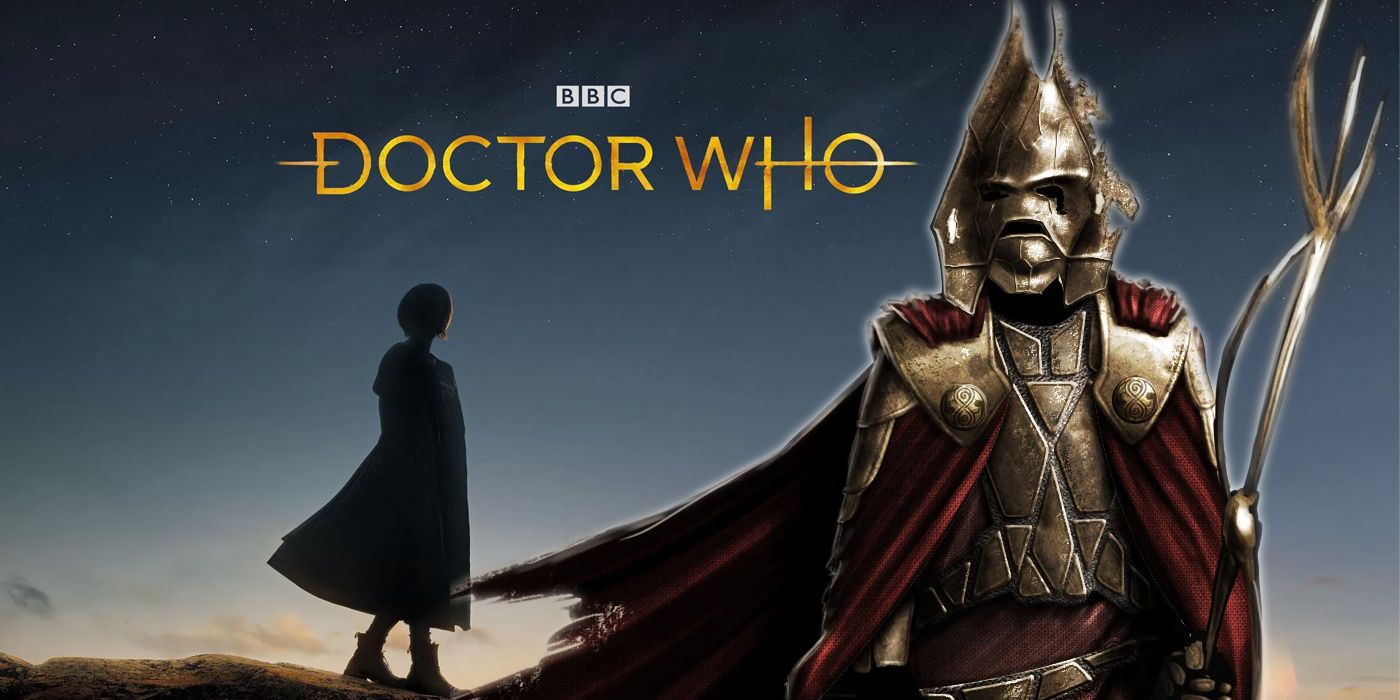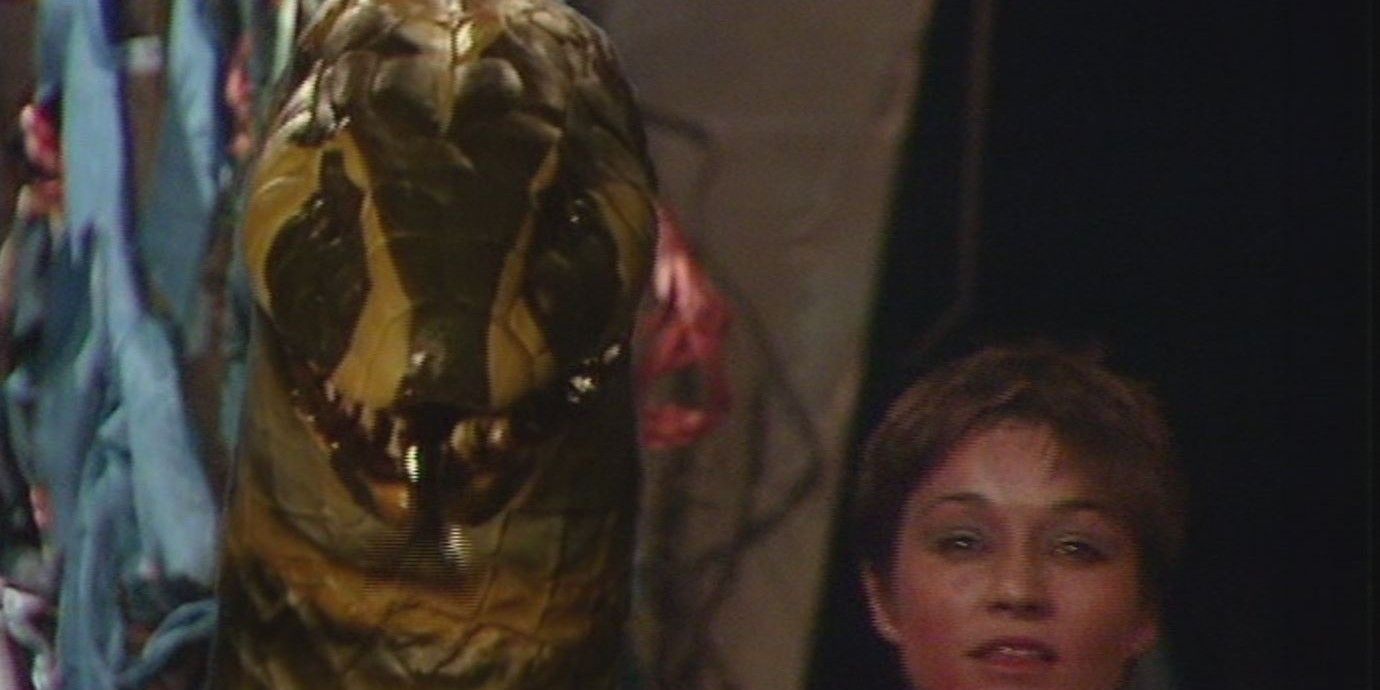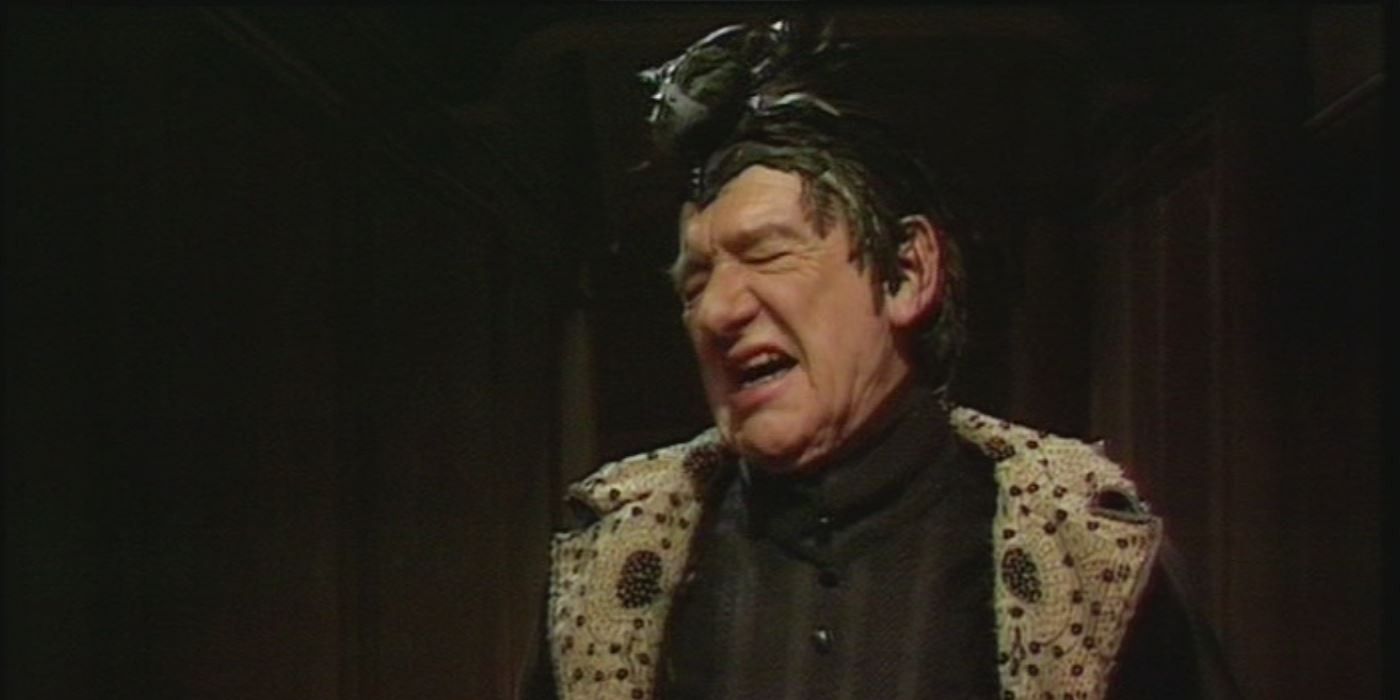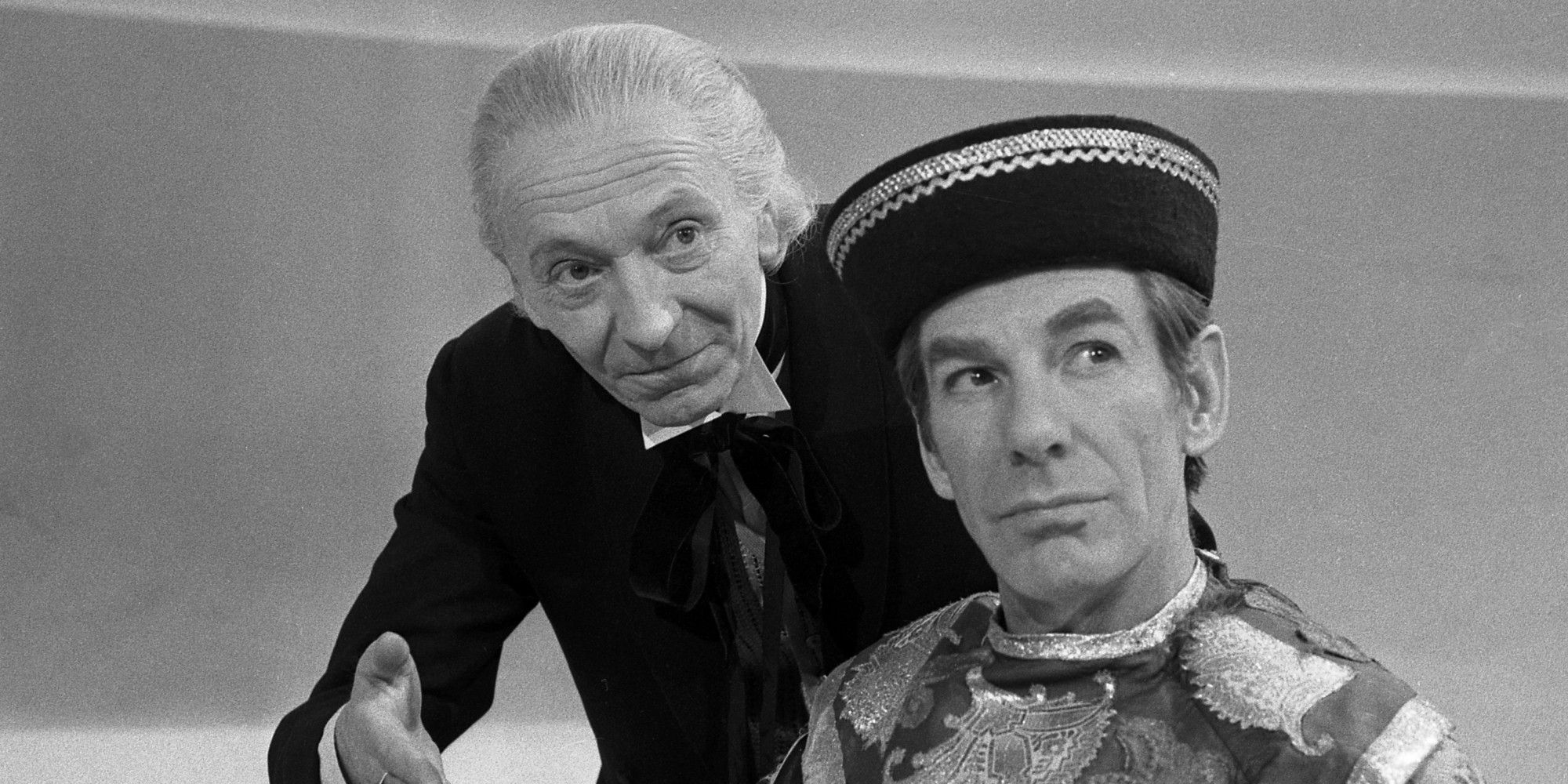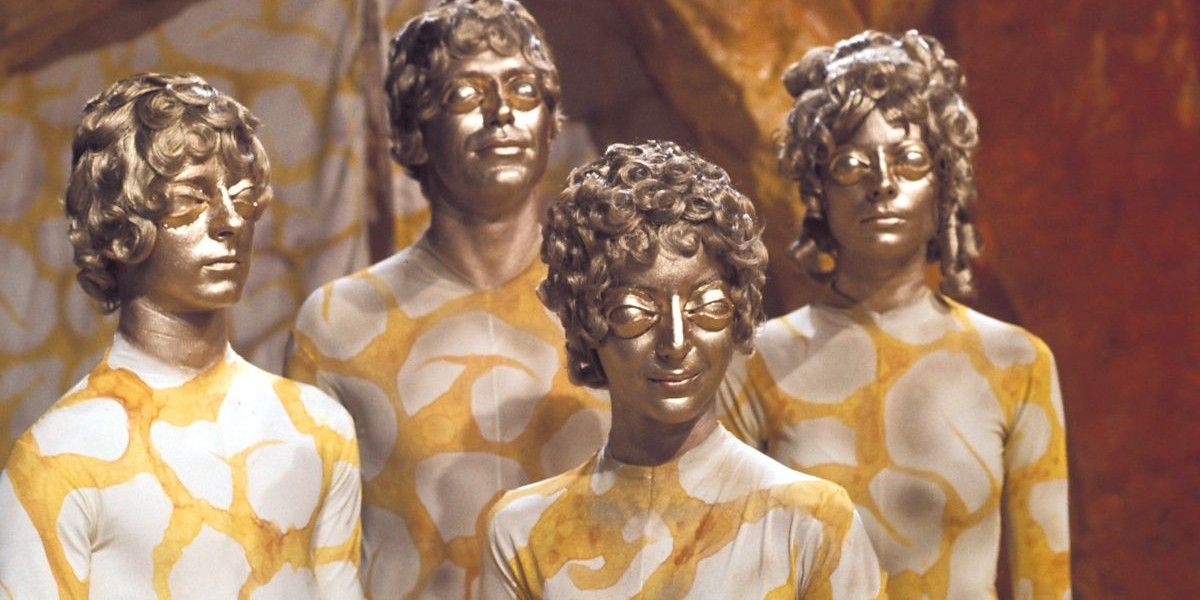It's time for Doctor Who to regenerate some classic villains from the franchise's history ahead of Jodie Whittaker's debut as the Thirteenth Doctor. Since returning to screens in 2005, new Who has been nothing short of a runaway success. Yet despite its achievements, there have been some recurring criticisms of the modern era throughout the last thirteen years.Some viewers couldn't connect with Steven Moffat's tenure as showrunner, others turned off when Matt Smith regenerated into the recently-departed Peter Capaldi and the TARDIS love stories always prove controversial. However, there is one particular criticism that has gained more traction with each passing season: Doctor Who's reliance on a small group of classic villains, namely the Daleks, the Cybermen and The Master.Related: Doctor Who's Christmas Special Wasted Its Two DoctorsOther classic monsters have featured in recent seasons of course - The Ice Warriors, Sontarans and Zygons immediately spring to mind - but their appearances have been largely standalone, with the more significant arcs saved for bigger name baddies. While this made perfect sense for the early few seasons (the Dalek battles that concluded Seasons 1 and 2 were glorious and The Master's initial return was arguably the show's best twist to date) the formula hasn't changed much over the last ten runs.This Page: New Doctor Who's Villain Problem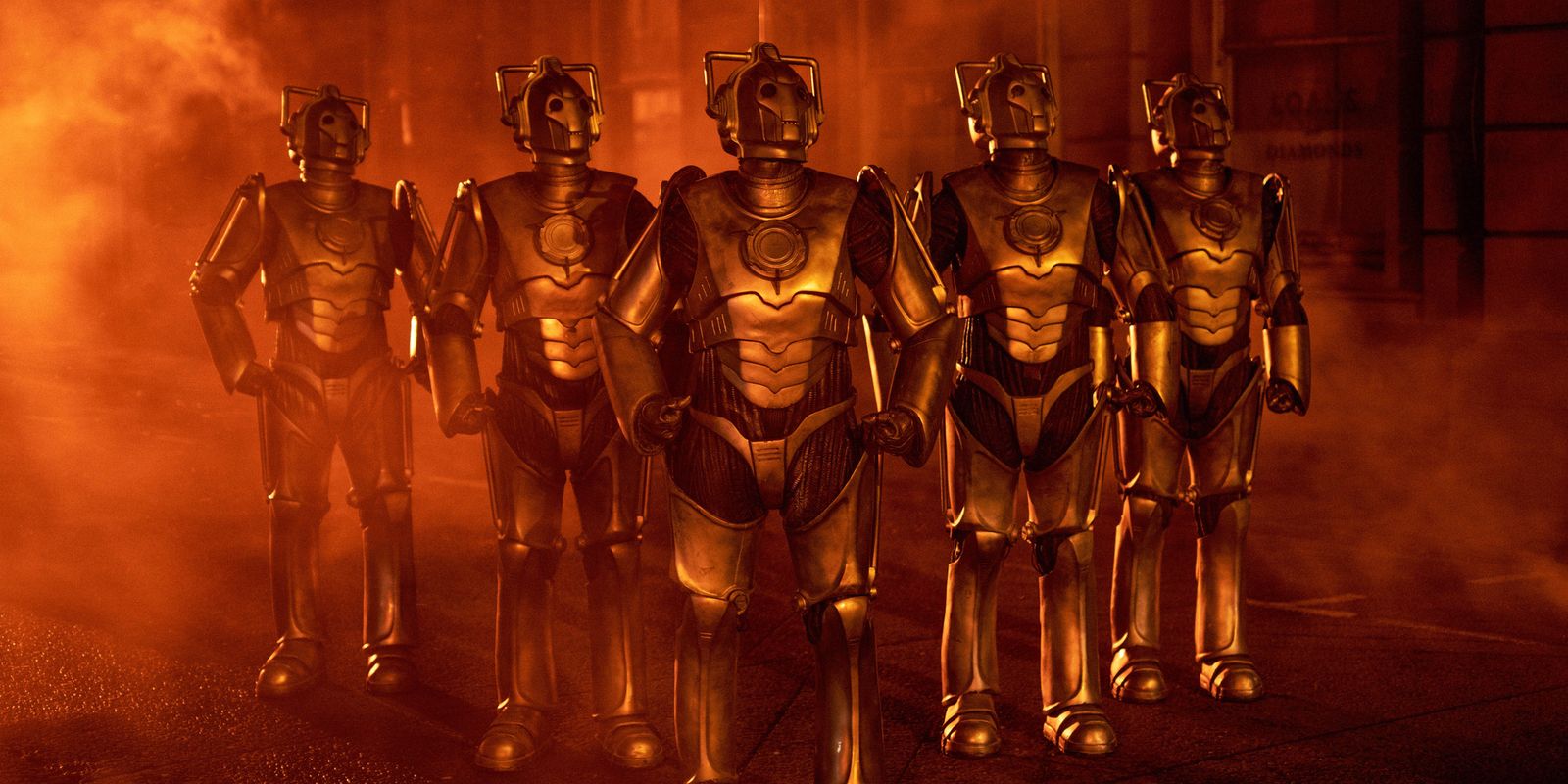 The vast majority of modern season finales have featured some combination of the aforementioned trio of villains, with the rest either opting for a large scale team up ("The Pandorica Opens"/"The Big Bang") or avoiding a central villain altogether ("Hell Bent"). A notable exception to this is the Great Intelligence's appearance in "The Name Of The Doctor" - although the episode is unfortunately remembered more for its overly-convoluted story rather than Richard E. Grant's turn as the classic villain.As a result, a certain element of predictability has surrounded Doctor Who. An inevitable sense that each season will boil down to something similar to the last. In a way, it's hard to begrudge the show's formula, the Daleks and the Cybermen are the most marketable foes in the franchise's arsenal and proven merchandise shifters, while The Master is arguably the titular hero's arch nemesis and one of the most versatile and complex antiheroes in fiction.But even that infamous bunch have a shelf life and this is something that Doctor Who's creative team realized as far back as the 1970s when both the Daleks and Cybermen were afforded an extended break during Jon Pertwee's tenure as the Doctor. It might be unrealistic to expect something similar in 2018 but there's certainly an argument to be made that doing so would benefit these villains in the long term, as their frequent use has resulted in both a lessened impact upon the audience and a number of unsuccessful soft-reboot attempts.
The vast majority of modern season finales have featured some combination of the aforementioned trio of villains, with the rest either opting for a large scale team up ("The Pandorica Opens"/"The Big Bang") or avoiding a central villain altogether ("Hell Bent"). A notable exception to this is the Great Intelligence's appearance in "The Name Of The Doctor" - although the episode is unfortunately remembered more for its overly-convoluted story rather than Richard E. Grant's turn as the classic villain.As a result, a certain element of predictability has surrounded Doctor Who. An inevitable sense that each season will boil down to something similar to the last. In a way, it's hard to begrudge the show's formula, the Daleks and the Cybermen are the most marketable foes in the franchise's arsenal and proven merchandise shifters, while The Master is arguably the titular hero's arch nemesis and one of the most versatile and complex antiheroes in fiction.But even that infamous bunch have a shelf life and this is something that Doctor Who's creative team realized as far back as the 1970s when both the Daleks and Cybermen were afforded an extended break during Jon Pertwee's tenure as the Doctor. It might be unrealistic to expect something similar in 2018 but there's certainly an argument to be made that doing so would benefit these villains in the long term, as their frequent use has resulted in both a lessened impact upon the audience and a number of unsuccessful soft-reboot attempts.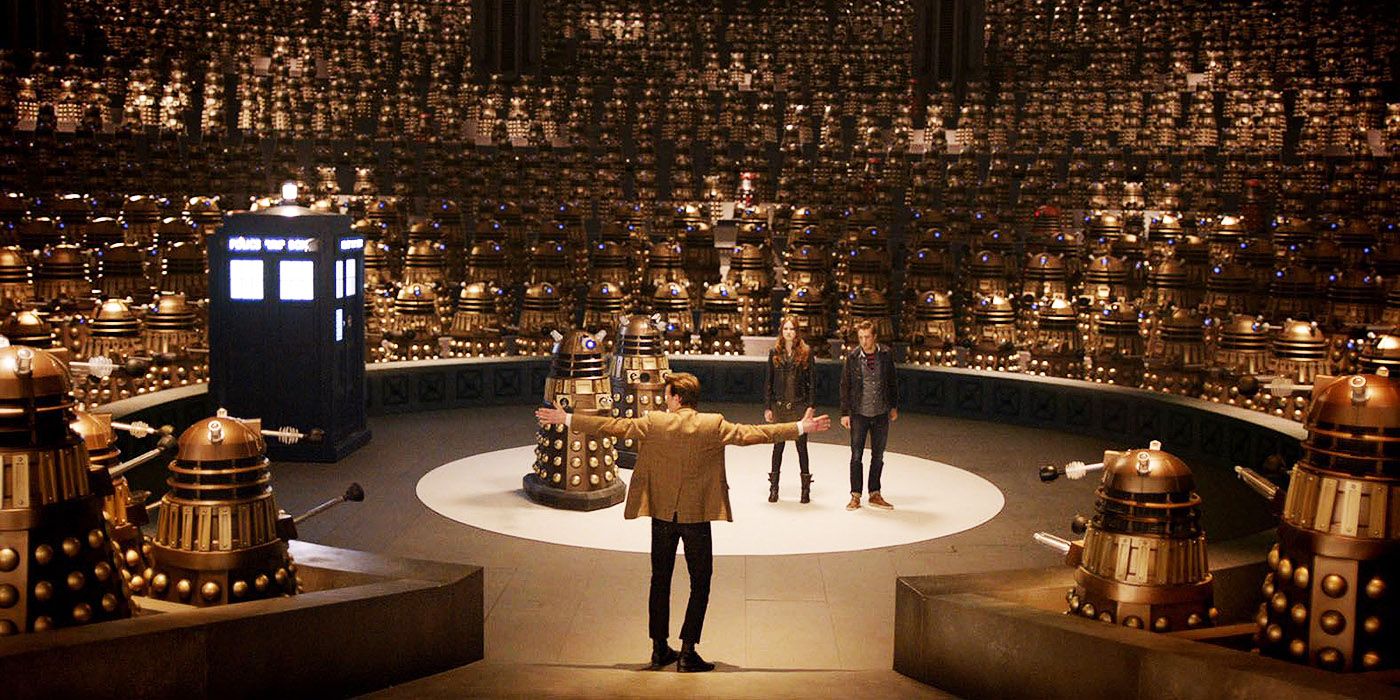 This has been particularly obvious in the case of the Daleks. The pepper-pot shaped villains made a huge impact as they fought David Tennant at London's Canary Wharf but are now little more than part of the Doctor Who furniture. Perhaps it's for this reason that Steven Moffat attempted several Dalek resets, firstly with the poorly-received 'Power Ranger' Daleks and again in "Asylum Of The Daleks" when the villains supposedly forgot who The Doctor was. Neither reshuffle had a lasting impact.Related: Doctor Who: 18 Things You Didn't Know About The DaleksThere is certainly a place for these oft-utilized antagonists but perhaps sparingly and with the right story. Fresh blood from Doctor Who's illustrious past would also help and, happily, there are a number of suitable candidates who have yet to be seen in the new era but would make excellent modern enemies nonetheless. Here are five possible classic-era Doctor Who villains that Jodie Whittaker could face in her forthcoming debut season.
This has been particularly obvious in the case of the Daleks. The pepper-pot shaped villains made a huge impact as they fought David Tennant at London's Canary Wharf but are now little more than part of the Doctor Who furniture. Perhaps it's for this reason that Steven Moffat attempted several Dalek resets, firstly with the poorly-received 'Power Ranger' Daleks and again in "Asylum Of The Daleks" when the villains supposedly forgot who The Doctor was. Neither reshuffle had a lasting impact.Related: Doctor Who: 18 Things You Didn't Know About The DaleksThere is certainly a place for these oft-utilized antagonists but perhaps sparingly and with the right story. Fresh blood from Doctor Who's illustrious past would also help and, happily, there are a number of suitable candidates who have yet to be seen in the new era but would make excellent modern enemies nonetheless. Here are five possible classic-era Doctor Who villains that Jodie Whittaker could face in her forthcoming debut season.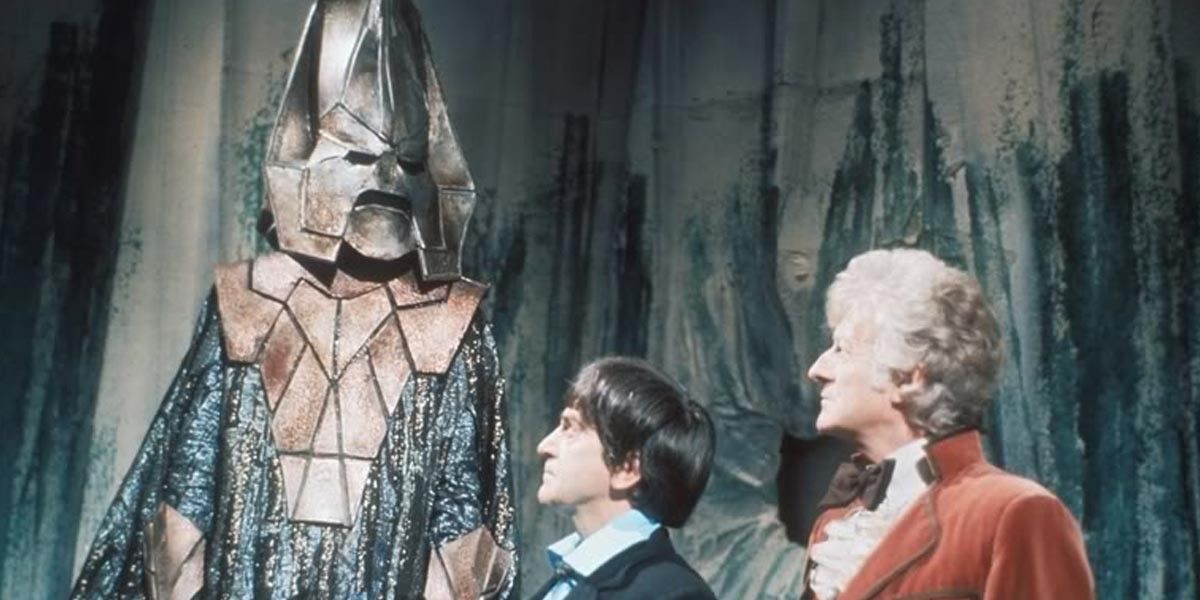
Omega
Rassilon has had the "megalomaniac rogue Time Lord" gig well and truly pinned down in modern-era Doctor Who but arguably the biggest classic villain yet to appear, Omega, could give him a run for his Gallifreyan money. With a visual appearance that fuses Sauron and Doctor Doom, Omega certainly has the intimidation factor and a contemporary makeover could make the villain truly menacing.
Last seen on television being defeated by the Fifth Doctor, Omega has a natural hatred for Time Lords and control over the power of anti-matter, positioning him as a powerful opponent for the Doctor to encounter. It's surely only a matter of time before this character re-emerges.
The Mara
First appearing in the "Kinda" serial, The Mara is a mysterious snake-like being capable of infecting and possessing unwilling hosts, with the only giveaway being a snake tattoo on the host's arm. Although a giant rubber snake is unlikely to be warmly received by fans in 2018, the idea of having an unseen enemy take over the Doctor's assistants is a concept that contemporary audiences could certainly get behind.
Related: Doctor Who May Feature Rosa Parks in Season 11 Episode
The Mara has been mentioned in Doctor Who spinoff Torchwood, so it certainly still exists in the modern era (even if it would need a visual overhaul) and it could be fascinating to see a re-imagining of The Mara's trippy home-world, the ominously titled "Dark Places of The Inside".
Black Guardian
The Black and White Guardians are perhaps the closest things to God-like beings to have featured in Doctor Who and, as such, their absence over the past thirteen years could be considered somewhat surprising. The Black Guardian is supposedly an embodiment of evil and chaos but was thwarted by the Fifth Doctor and his companions in the villain's last on-screen appearance, "Enlightenment".
Although the magnanimous White Guardian promised his counterpart would return, the Black Guardian has only appeared since within the franchise's extended media and is overdue another appearance on television. A story featuring the Black Guardian attempting to corrupt game-show-host-turned-Doctor Who-companion Bradley Walsh would be most welcome.
The Celestial Toymaker
First Doctor villain The Celestial Toymaker only appeared once on television but has been prominent in comic and audiobook releases and it's not hard to see why the character's appeal has endured. Although the Toymaker is an omnipotent being that exists outside of the universe's regular laws of physics, he eschews the usual trope of wanting to take over the world in favor of forcing lesser beings to take part in a variety of childish games.
Related: Doctor Who: The Real Meaning Of Peter Capaldi's Regeneration and Final Lines
Wider media has positioned the Toymaker as another Guardian but whether the TV show opted to go down this route or not, the villain's origins, motivations and backstory are still a relatively blank slate, despite him debuting in 1966. Additionally, the Celestial Toymaker's penchant for making innocent people compete for their freedom makes him an ideal and unique opponent for The Doctor.
The Axons
Even the most ardent Whovian would have to admit that Doctor Who villains in the classic era rarely looked scary or convincing to anyone over the age of ten and with the limited budget and technology available, the best option was often to keep the designs simple. This may explain why the gold-bodied Axons left such a huge impression despite only notching up a single stint on TV.
Peter Capaldi himself expressed an interest in seeing The Axons reinvented in the modern era due to their God-like appearance covering a far more horrifying form and although Steven Moffat was never keen on the villains - he likened them to BAFTA award statues - new showrunner Chris Chibnall may have other ideas.
Next: When Will Jodie Whittaker's First Season of Doctor Who Air?
Doctor Who season 11 premieres in October 2018 on BBC and BBC America.

